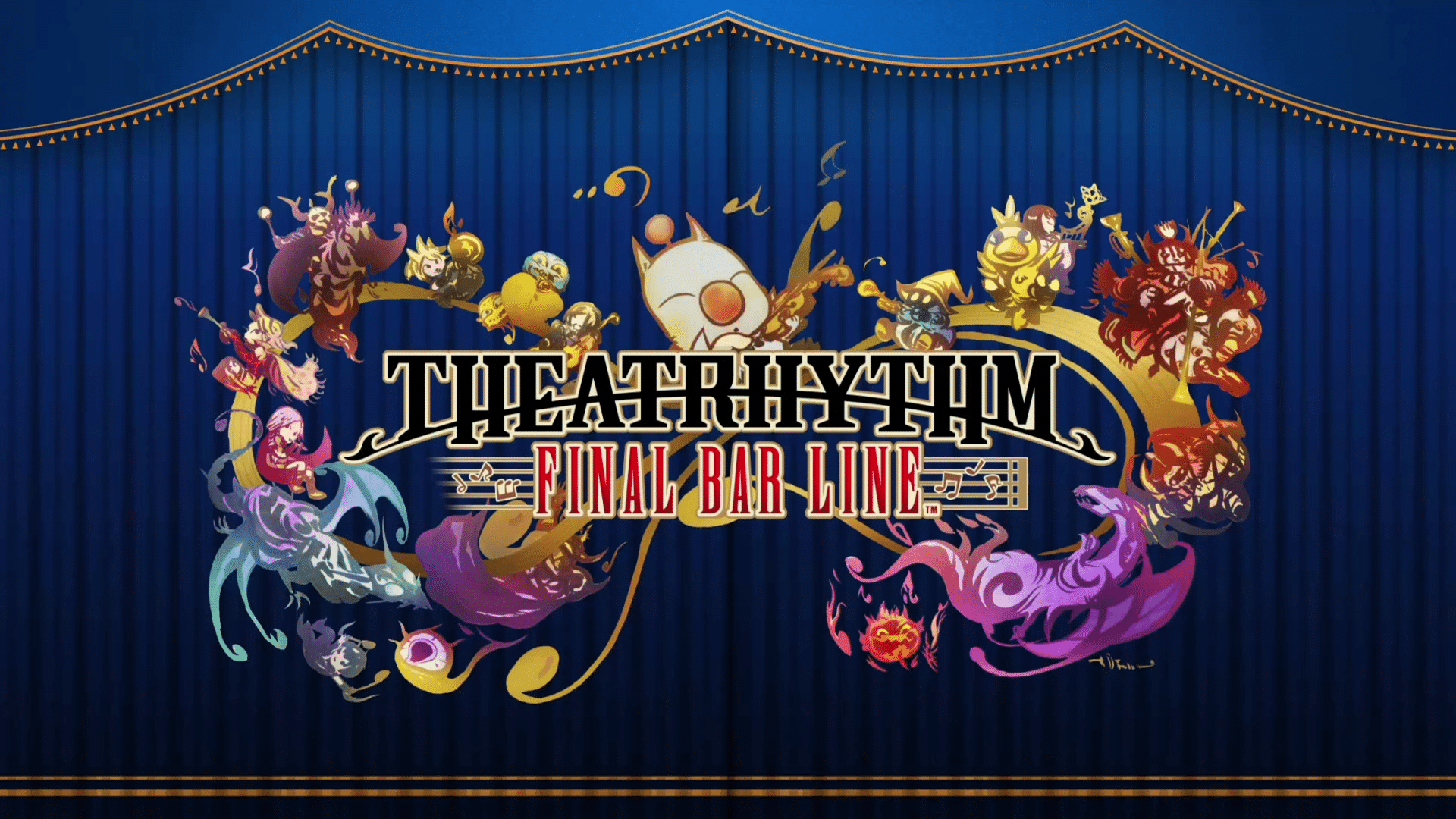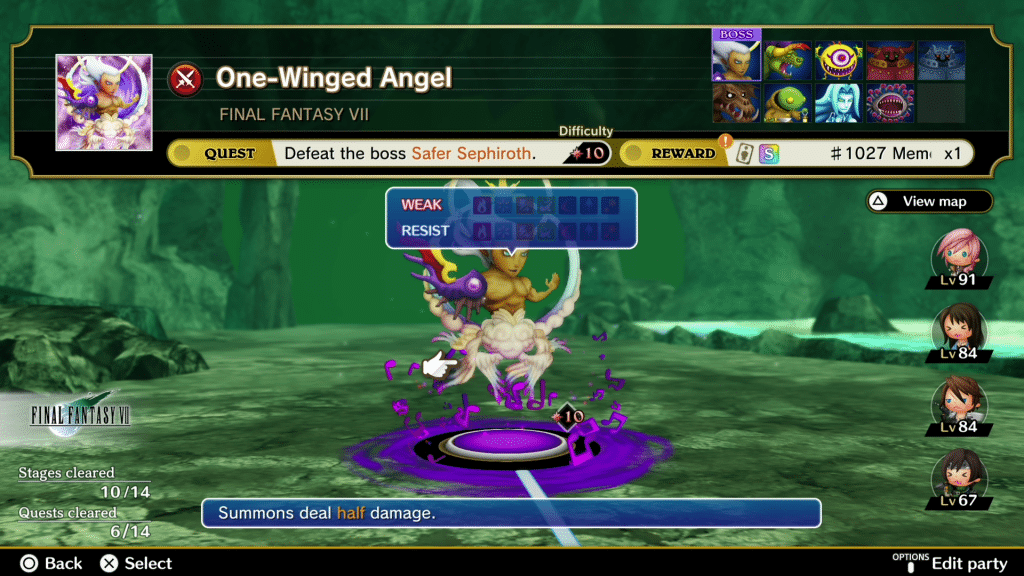

There are few gaming franchises that have endured for as long as Final Fantasy. The unusual RPG series found a lot of success by offering engaging stories coupled with deep mechanics. While Final Fantasy is best known for its narrative, it has some of the best soundtracks around, with titles like One-Winged Angel remaining as popular as ever. This eventually resulted in Square Enix creating Theatrhythm for Nintendo 3DS. The title took some of the best songs, and characters, and threw them into a rhythm game. It was extremely successful, resulting in a sequel, arcade port, and now it’s back on consoles with Theatrhythm Final Bar Line. With a new generation of gamers getting to experience it, will it stand the test of time, or was it better left in the past?
Instead of having a narrative in the traditional sense, Theatrhythm Final Bar Line features a mode called Series Quests. It’s meant to be an introduction to the experience, along with slowly expand the offerings. At first you’ll have access to the lowest difficulty titles, with this increasing overtime, concluding with a final selection of sorts. These are a great introduction to the experience, as everything is tied to the iconic titles in question.


For example, starting with Final Fantasy XIII gives Lightning, Hope, Snow, and Vanille. Every song is taken from that title, along with everything else. The various songs build to a fight against Orphan, the final boss of Final Fantasy XIII. Every title has a similar progression, making it an absolute delight making it to Ultimecia, or Safer Sephiroth.
As the name of the mode suggests, every stage also features an optional quest. These also range in difficulty, asking players to full combo, perform some feat, or just beat the boss in question. They’re nice because a lot of them build on the RPG aspects present in Theatrhythm Final Bar Line.
Every character is broken up into various types. There are physical/magic attackers, defense, healer, summon, support, and so forth. Good teams will be varied, making use of certain skills, enemy weaknesses, or just aiding them in making it to the end of a level. Characters also have three usable skills, a summon with various perks, and more. This means to complete every quest you need more than just skill. Sometimes you’ll need specific characters, change your build, or just swap your perks. It makes things fun, as it’s a unique way to merge the two concepts.
Finishing stages also give a wide variety of perks. Some are collectibles that offer a benefit, iconic items from the series that can be used to make certain challenges, or stages easier, to even characters like Edea. Stages also give various rewards, making the grind more rewarding than chasing high scores. While this covers the general concepts, gameplay is also surprisingly well done.
Every Series Quest stage is broken up into either a Battle, or Field stage. Battle stages have four input markers present at all times, and involves rotating through various opponents. Fields have a single indicator that can expand to multiple if a section has two or more inputs, with these stages focusing on moving across locations.
For the most part, these stages play the same way. Inputs can be made with any button, with red being single press, and green requiring you to hold. Battle stages will change holds up by asking players to swap to different buttons, with Field making players move the counter with a thumbstick. There are also orange directional inputs. These use one or both thumbsticks moved in a specific direction.
Those looking for more/less challenge can select one of up to four difficulties. Most songs feature three, with select songs including a final Supreme difficulty. To further this, there is also a standard, and simple input mode. The difference between the two is simple lacks directional inputs, plus removes the needs to use multiple buttons. This makes songs generally less stressful, though does not completely remove the challenge.
Outside of Series Quest there are two other modes called Music Stages, and Multi Battle. Music Stages is basically quick play mode. Every unlocked song appears here, along with some not featured in Series Quest. The biggest change offered by this mode is the addition of Event Music Stages.
This is the third and final type of stage found in Theatrhythm Final Bar Line. Instead of having the traditional horizontal inputs, it’s vertical like Guitar Hero. These stages also don’t show your characters, opting to instead showcase a video from the title in question. These can be some of the hardest stages to complete, since they’re a lot more active in the background. Fans will love reliving some of the best moments, making them stand out beyond the song in question.
Finally, Multi Battle is a competitive multiplayer mode. You can play against up to four players at various difficulties, with the winner getting one of the losers ProfiCard. Summonstones attached to these cards are also yours to keep, making them a solid way to farm powerful rewards.
Theatrhythm Final Bar Line: Theatrhythm Final Bar Line does a great job of bringing the franchise back for a new generation of gamers. Not only does it feature new titles, like Final Fantasy XIV, and Final Fantasy XV have sizable representation, it also expands to celebrate some of the best songs Square Enix has released. This, along with the fair cost of entry, makes this up to 502 track experience an absolute must for fans of Square Enix, or music games in general. – Grant
[Editor’s Note: Theatrhythm Final Bar Line was reviewed on PlayStation 5, and a copy was provided to us for review purposes.]
Those who know the digital block have not greeted news that the "Warhammer 40,000: Space…
Balance changes are always the hot topics of the day in the ever-changing realm of…
From Indian independent game developer UnderDOGS, Mukti is an upcoming PS5 and PC title that's…
WWE 2K25 just got even better with developer Visual Concepts releasing Patch 1.12 for the…
Oblivion Remastered has managed to beat the original Oblivion in sales, at least when it…
Lies of P has received a massive new update that will add tons of fixes…